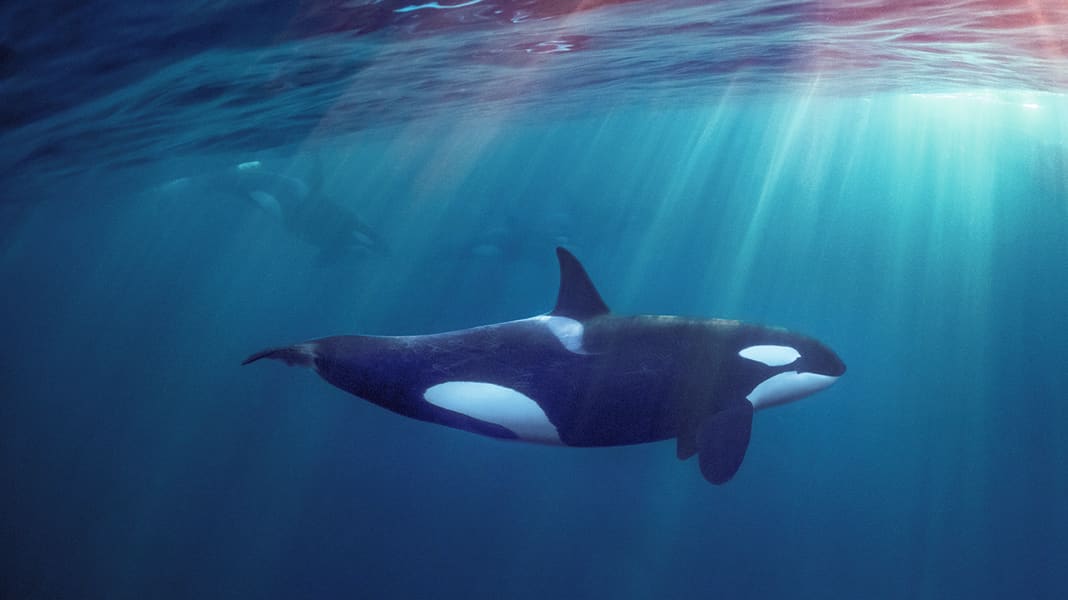
According to the report, the tragic encounter took place last Sunday morning at around 9 a.m. local time. The two sailors of the 15-metre-long "Alboran Cognac" reported that they were surprised by thudding blows against the hull and rudder of the yacht. Shortly afterwards, a lot of water had already entered the boat.
The crew then made an emergency call. The rescue services immediately sent a nearby tanker to the sailors' aid. The tanker salvaged the two casualties and brought them to Gibraltar. The yacht sank shortly afterwards.
More on the topic:
According to the research group GT Atlantic Orca, which monitors the populations of Iberian orcas, there have been almost 700 such interactions since the first report of attacks by the animals on ships in the region in May 2020. Experts suspect that the latest incident also involved around 15 whales from the sub-population known as "Gladis".
Various theories to explain the behaviour
The reasons for this behaviour are still unclear to researchers. Some theorise that it is a playful form of expression due to the animals' curiosity. Other scientists are of the opinion that the interactions are the result of a social characteristic of the animals or even targeted attacks on ships perceived as competitors for the favoured prey, the bluefin tuna. However, none of this has yet been proven.
Orcas, which are an endangered species in some regions of the world, belong to the dolphin family. They can reach a length of up to eight metres and weigh up to six tonnes.
The list of registered interactions is getting longer and longer
The sailors of the "Alboran Cognac" join a long list of crews whose yachts have been attacked by orcas. Fortunately, it is often only the steering gear that is damaged. This can then be repaired in the next harbour. However, there have also been several cases in which crews have lost their boats as a result of the attacks and in some cases have only been rescued at the last minute.
In addition, orca attacks on ships, which were mainly limited to the waters of the Strait of Gibraltar and the Portuguese and Spanish Atlantic coasts, have now also been recorded elsewhere. The concern is therefore that other orca populations could copy the behaviour of the "Gladis" animals.
More on the topic:

Pascal Schürmann
Editor YACHT
